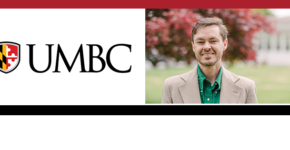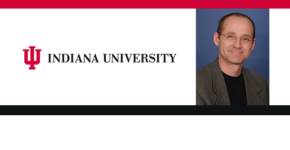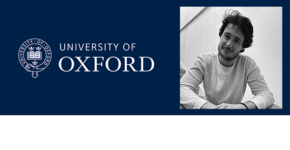Tag: Philosophy
-

Erik Van Aken, Rocky Mountain College – Chaos and Cause
Chaos theory has changed how we think about certain ideas in physics. Erik Van Aken, instructor of philosophy and religious studies at Rocky Mountain College, explains why. Erik Van Aken is Instructor of Philosophy and Religious Studies at Rocky Mountain College. His research focuses on the metaphysics of causality, scientific methodology, and debates on objectivity. Chaos…
-

David S. Oderberg, University of Reading – To Err Is Not Only Human
Mistakes are a part of life. David S. Oderberg, professor of philosophy at the University of Reading, says all creatures follow this mantra. David S. Oderberg is Professor of Philosophy at the University of Reading in the UK. His latest book is The Metaphysics of Good and Evil (2020). He is currently writing a book…
-

Sandra Woien, Arizona State University – Stoicism and Spirituality
Ancient philosophies can still ring true today. Sandra Woien, associate teaching professor in the school of historical, philosophical, and religious studies at Arizona State University, determines why. Sandra Woien is an Associate Teaching Professor in the School of Historical, Philosophical, and Religious Studies at Arizona State University. She currently teaches a variety of courses dealing…
-

Michael Nance, University of Maryland Baltimore County – Erhard on the Right to Revolution
On University of Maryland Baltimore County Week: Revolutions carry many inherent risks. Michael Nance, associate professor of philosophy, takes a philosophical approach to these conflicts. Michael Nance is Associate Professor of Philosophy at the University of Maryland, Baltimore County. He has also been an Alexander von Humboldt Research Fellow at the Goethe-Universität, Frankfurt. With James…
-

Moti Mizrahi, Florida Institute of Technology – “Scientism” as an Anti-Science of Doubt and Disbelief
The terms people use to stoke disbelief and doubt in science can be costly. Moti Mizrahi, associate professor of philosophy in the school of arts and communication at Florida Institute of Technology, details how. Moti Mizrahi is Associate Professor of philosophy in the School of Arts and Communication at the Florida Institute of Technology. He…
-

Nicole Hassoun, Binghamton University – Sharing Vaccine Intellectual Property
Sharing is caring. Nicole Hassoun, professor of philosophy at Binghamton University, examines global health through the lens of fighting off the next contagious virus. Hassoun is the director of the Global Health Impact (GHI), which works to create positive change by evaluating pharmaceutical products’ global health consequences and advocating for greater access to essential medicines. To learn more about this project…
-

Robert Kunzman, Indiana University – Learning from Failure
Failure is inevitable. Robert Kunzman, professor of curriculum studies and philosophy of education at Indiana University, explores how to learn from failure before moving past it. Robert Kunzman is Professor of Curriculum Studies and Philosophy of Education at Indiana University. His scholarship explores the purposes of education and how we can learn not only in…
-

David Bakhurst, Queen’s University – Why Education Matters to Philosophy
The field of philosophy is changing. David Bakhurst, Charlton professor of philosophy at Queen’s University, Ontario, looks into one instance why. David Bakhurst is Charlton Professor of Philosophy at Queen’s University, Ontario. His book, Consciousness and Revolution in Soviet Philosophy (Cambridge, 1991), represents the first critical history of Soviet philosophical culture. Since then, in addition…
-

Alex Moran, University of Oxford – In Praise of Mischief
Mischief isn’t always a bad thing, Alex Moran, Leverhulme Early Career Fellow in Philosophy at the University of Oxford, explains why. Dr Alex Moran is a Leverhulme Early Career Fellow in Philosophy at the University of Oxford, who will shortly be taking up a post as an IRC post-doctoral researcher at Trinity College Dublin. His…
-

Rebecca Rozelle-Stone, University of North Dakota – Attending to Crisis Fatigue
How much bad news can your brain handle at a time? Rebecca Rozelle-Stone, professor of philosophy and director of the honors program at the University of North Dakota, explores why the news cycle is so tiring. Rebecca Rozelle-Stone, Ph.D. is Director of the University Honors Program and Professor of Philosophy at the University of North…
